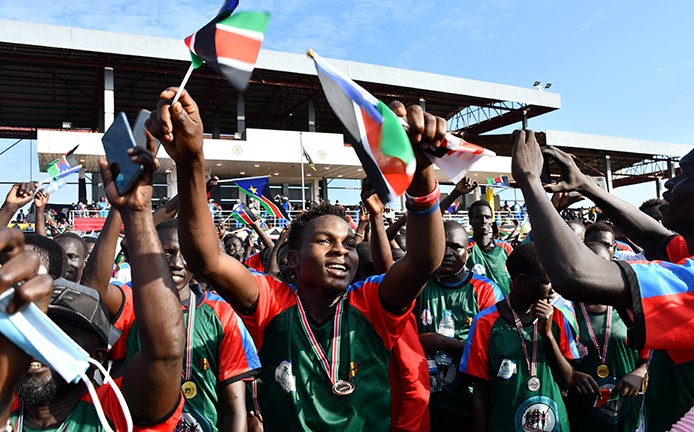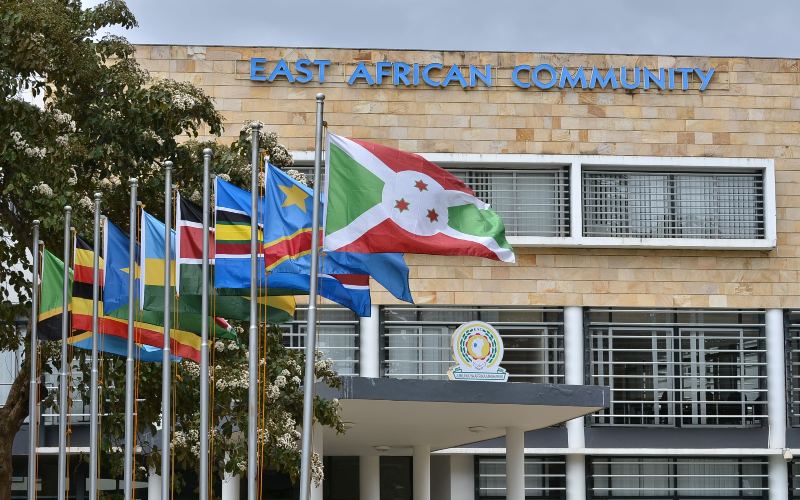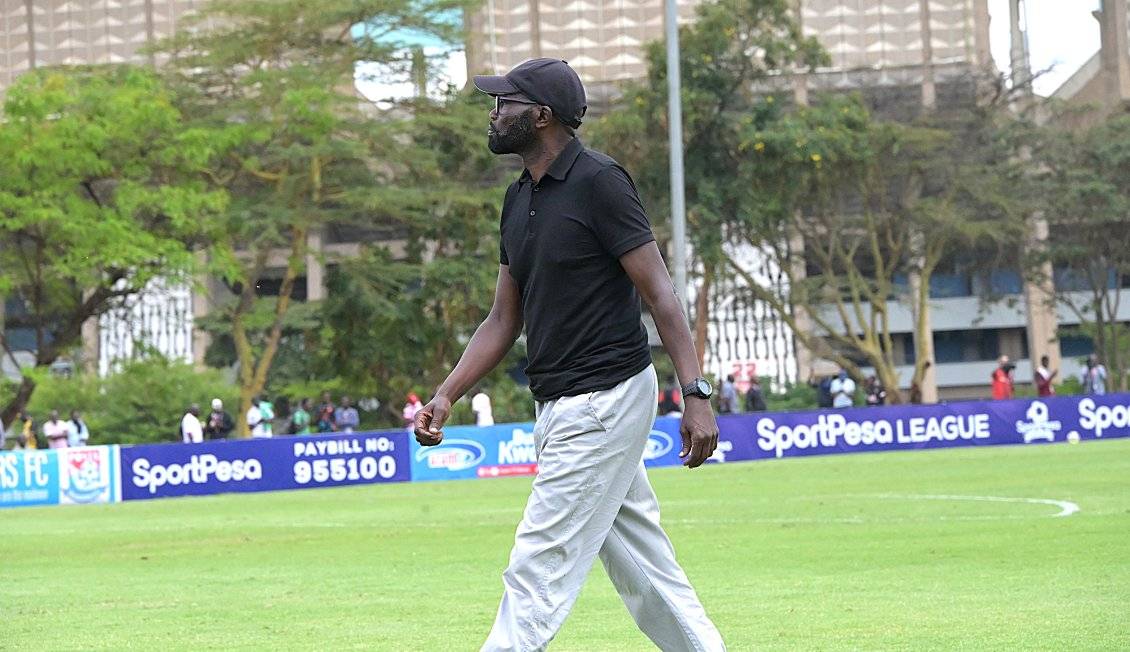Economic meltdown still plagues South Sudan 13 years after independence

The country has faced an economic meltdown that experts say could bring not only hardships but also political turmoil to a nation wracked with both.
Next week South Sudan marks its 13th Independence Day, a milestone for the world's youngest nation but for many South Sudanese, this anniversary is a sad reminder of the unfulfilled promises and the persistent challenges that plague the East African Community (EAC) country.
One of the most glaring issues is the government's inability to pay its employees, including soldiers, for almost nine months. This financial crisis has left many public servants struggling to survive, leading to widespread discontent and hampering the delivery of essential services.
More To Read
- UAE, US top diplomats discuss Sudan ceasefire efforts
- Trump to focus on ending Sudan civil war
- Egypt rejects any attempts to divide Sudan: FM
- Sudan’s war-tested university: How Mashreq kept students learning amid conflict
- Sudan conflict is spreading to South Sudan, hurting oil trade and border stability - UN
- Sudan crisis deepens as ICC warns El-Fasher atrocities may be war crimes
The country has faced an economic meltdown that experts say could bring not only hardships but also political turmoil to a nation wracked with both.
The civil war in neighbouring Sudan has severely disrupted oil exports, depriving South Sudanese coffers of petrodollars, the government’s main source of revenue.
Most South Sudanese public employees have not received a salary since October 2023, after the government in Juba quadrupled public sector wages to adjust for inflation.
Even after adjustments, Crisis Group reported in May that a regular soldier now earns only $15 a month, if one gets paid, with South Sudan’s political class which once benefitted from petrodollar wealth, admitting to adapting to a new era of austerity.
Governance outside the capital Juba is largely absent, according to Crisis Group.
Some members of the South Sudanese national parliament want the government to redirect infrastructure funds to pay civil servants who have gone for long without salaries.
The MPs urged this action in June while reacting to reports from the country's Ministry of Finance to parliament on the looming hunger crisis in the country.
They had grilled Minister Awow Daniel Chuang, along with the ministers for Agriculture and Food Security, as well as Trade and Industries, over the economic hardship the country has been facing.
MP Peter Gatkuoth proposed that the parliament passes a resolution, for instance, suspending the Akon International Airport project in Warrap State, and diverting the money to salaries.
Another MP, Peter Adwok, called for a "united stand" in declaring an emergency in the country and urged the government to reallocate money reserved for roads and bridges to the payment of civil servants.
Elusive peace efforts
Despite numerous peace agreements and international efforts, peace remains elusive in South Sudan.
The country has been mired in conflict since shortly after its independence, with rival factions vying for power and resources. This continuous strife has resulted in a humanitarian crisis, with millions displaced and many more in dire need of aid.
South Sudanese warring parties have been in Nairobi for a peace process led by Kenya dubbed “Tumaini”. This initiative is racing against time to ensure that the government and opposition parties agree on whether to hold elections in December as scheduled or to establish a new transitional government.
Peace monitors in the country say that South Sudan is not yet prepared for a fair and credible election for various reasons, including the need for a permanent constitution, funding, resettlement of displaced people, an army with a national face, and police to protect the people and the polls.
These would be South Sudan’s first-ever elections since the country became independent.
“There are no conditions for elections now. Our people are still divided. We need to reconcile our people," said Pagan Amum, a former secretary-general of the Sudan People's Liberation Movement when he spoke on the sidelines of the Nairobi peace process.
"We need to put and meet all the prerequisites of holding a free and fair election before we hold them because if you hold elections in an environment where people are divided, where you don’t have one single army and the political parties contesting elections have their militias and forces, any electoral dispute could lead us back to conflict and war, which we want to avoid by all means."
Upcoming election
Many South Sudanese expect the vote, promised as the final chapter of the country’s 2018 peace deal, to be delayed due to a lack of preparations and disputes among politicians about the way forward.
They blame the elite divisions, sown by South Sudan’s sudden loss of oil revenue in 2012 amid a standoff with Sudan over transit fees, for the civil war that erupted just over a year later as elections neared.
Key governmental and electoral institutions are in disarray, lacking the necessary infrastructure and stability to conduct fair and transparent elections.
The Reconstituted Joint Monitoring and Evaluation Commission (RJMEC), headed by Kenya’s Major General (Rtd) Charles Gituai, has consistently raised concerns about the lack of clarity surrounding South Sudan's upcoming elections scheduled for December, with little time left for preparation.
During a peace monitors meeting last week, the RJMEC chairperson gave a comprehensive update on the status of implementing the Revitalised Agreement on the Resolution of the Conflict in South Sudan.
"Also, critical election-related tasks remain outstanding, and time is fast running out," he said.
The peace monitor, who has consistently expressed scepticism about the feasibility of holding elections in the country, emphasised the crucial need for a permanent constitution.
Gituai stressed that the constitutional process must ensure it is genuinely led and embraced by the people.
Top Stories Today
















































